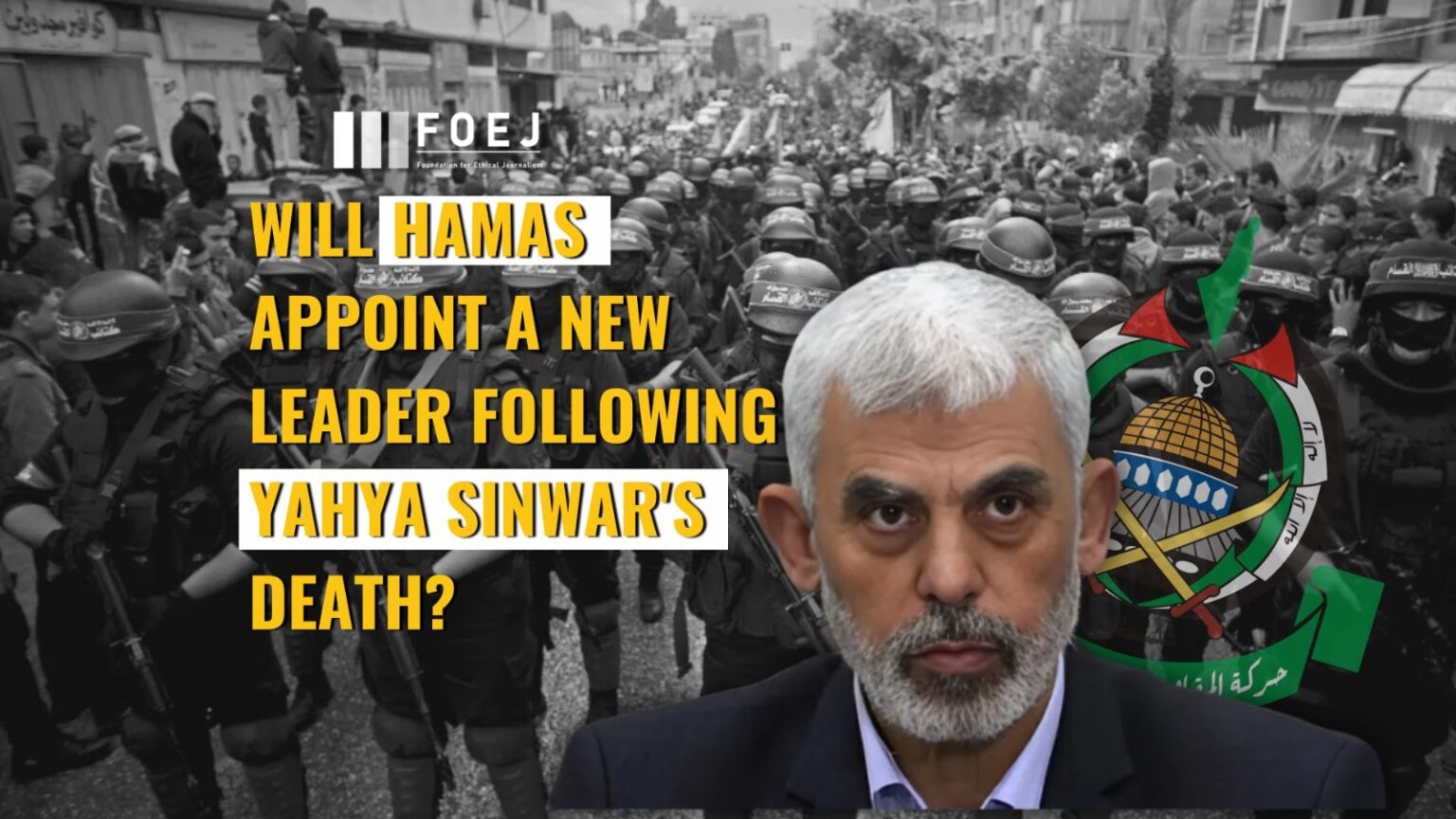Following the recent elimination of Hamas leader Yahya Sinwar by the Israeli Defence Forces, questions are swirling about the future leadership of the organization. Sources reveal that Hamas will refrain from appointing a new chief for the next five months. As the group adjusts to this significant change, it remains uncertain who will step into a leadership role and when a formal announcement regarding Sinwar’s successor will be made.
Who Will Be the Next Hamas Chief?
Following the death of Yahya Sinwar, speculation about his potential successors has emerged. However, recent reports indicate that Hamas will not appoint a new chief for the next several months, leaving the organization’s leadership situation in a state of uncertainty.
AFP quoted a source as saying, “The Hamas leadership’s approach is not to appoint a successor to the late chief, the martyr Yahya Sinwar.”
According to reports, a five-member committee elected in August will jointly lead Hamas following the killing of Ismail Haniyeh in Tehran. This committee is set to assume leadership as the conflict between Israel and Palestine continues.
The committee reportedly includes Khalil al-Hayya, Zaher Jabarin, and Khaled Meshaal, representing Gaza, the West Bank, and Palestinians abroad, respectively. Additionally, Mohammed Darwish, the head of Hamas’ Shura Advisory Council and Political Bureau Secretary, is also a member of this leadership group.
All members of this committee are based in Qatar, and they have been tasked with governing Hamas during the ongoing conflict and exceptional circumstances, as well as outlining the organization’s future plans. The committee also holds the authority to make strategic decisions moving forward.
According to an AFP report, while the five-member committee will lead Hamas for the time being, a new chief is not expected to be appointed before the next elections, which may occur in March 2025, “if conditions permit.”
When Will Hamas Appoint Its Next Leader?
According to an AFP report, the same source indicated that while a five-member committee will currently lead Hamas, the organization will not appoint its next chief until after the next elections, which are tentatively scheduled for March 2025, “if conditions permit.”
The killing of Hamas leader Yahya Sinwar by Israeli forces in Gaza has prompted the militant group to consider new leadership for the second time in less than three months. This raises questions about whether Hamas will shift away from its hard-line approach or reinforce it, and what implications this will have for the future of the group, as well as for potential cease-fire and hostage exchange negotiations with Israel. Sinwar had replaced Hamas’ previous leader, Ismail Haniyeh, who was killed in July in an explosion in Iran widely attributed to Israel.
As an architect of the October 7, 2023, attack in southern Israel that ignited the current war in Gaza, Sinwar was a bold choice for leadership at a time when many anticipated Hamas might pursue a more conciliatory approach to end the conflict. His killing reportedly occurred during a frontline encounter with Israeli troops on Wednesday.
Sinwar’s death may have little immediate impact on Hamas, but it represents a significant symbolic victory for Israel in its ongoing war against the group in Gaza. At the same time, Hamas can portray Sinwar as a hero who died on the battlefield rather than hiding in a tunnel, bolstering its narrative among supporters.
While Hamas is currently on the defensive and largely operating underground in Gaza, it continues to engage in combat with Israeli forces and maintain political influence. Bassem Naim, a Qatar-based member of the group’s political bureau, noted that Israel has previously targeted Hamas leaders, including its founding leader Sheikh Ahmed Yassin and his successor Abdel Aziz Rantisi, both killed in airstrikes in 2004. Naim stated, “Each time, Hamas became stronger and more popular, and these leaders became icons for future generations.”









